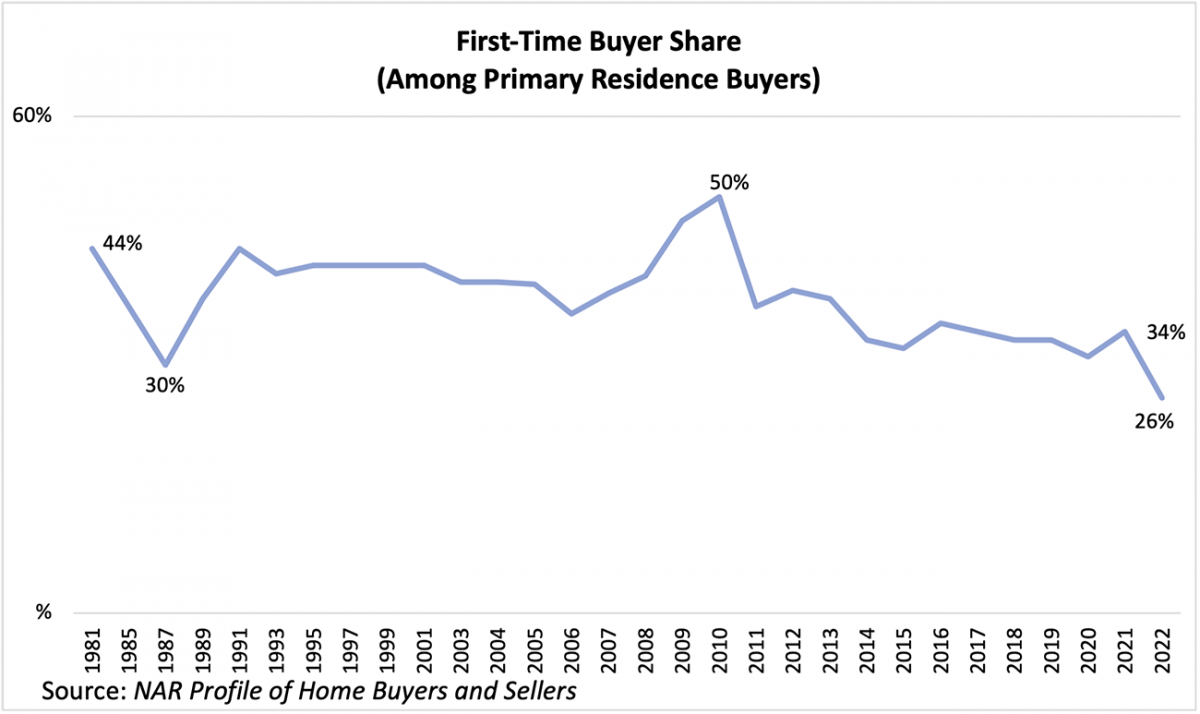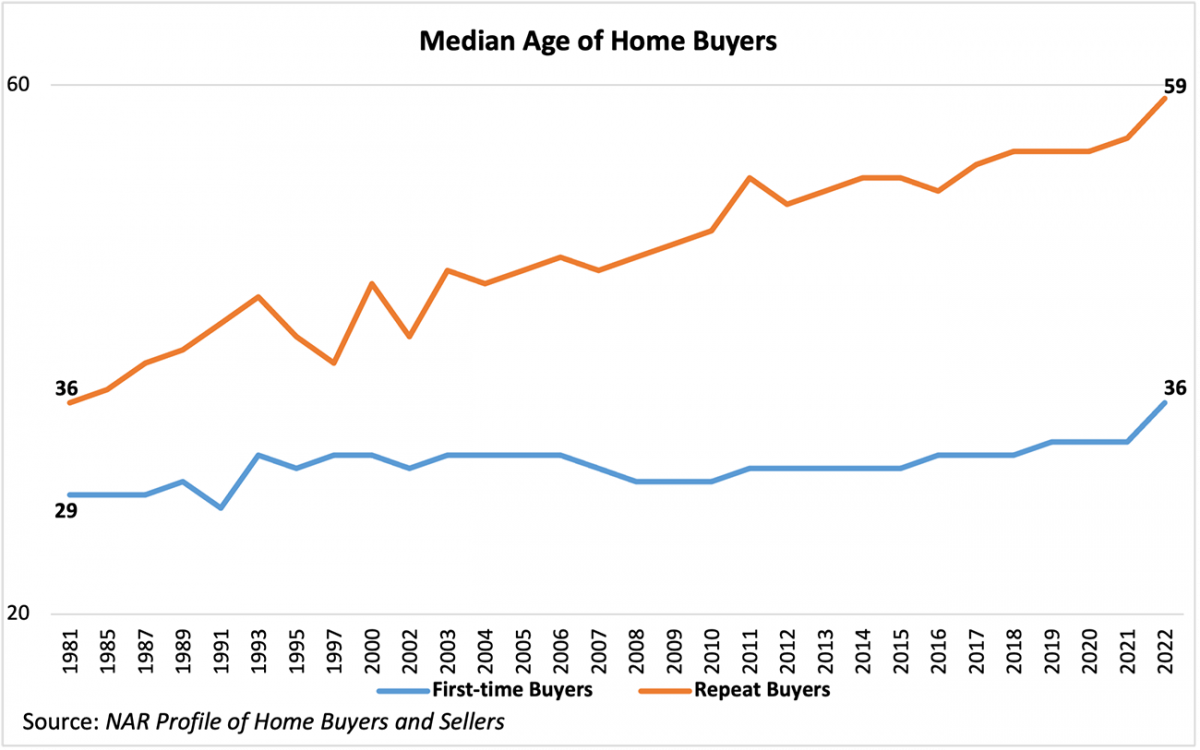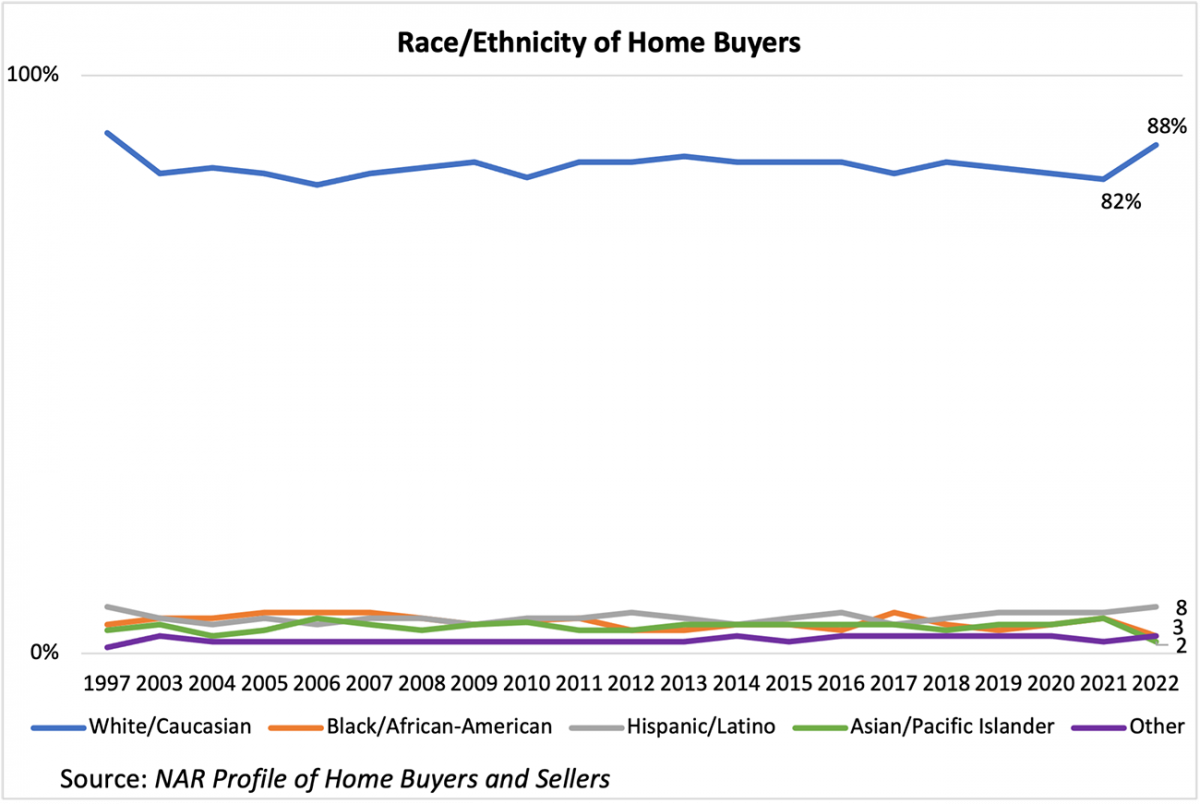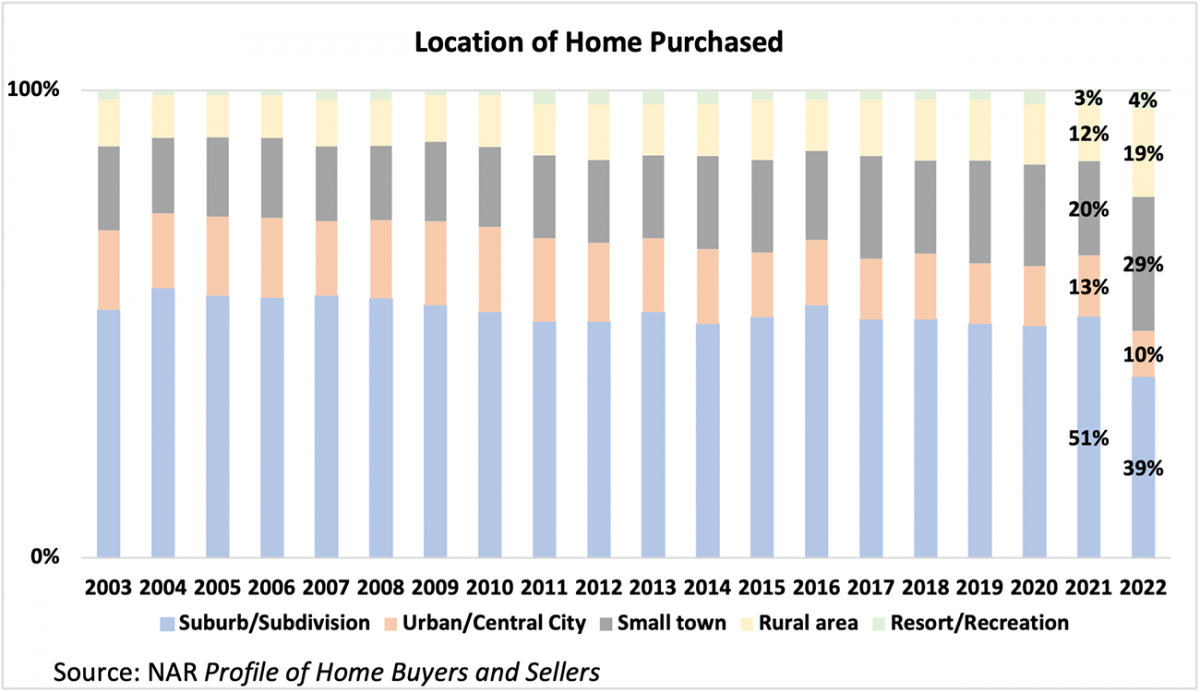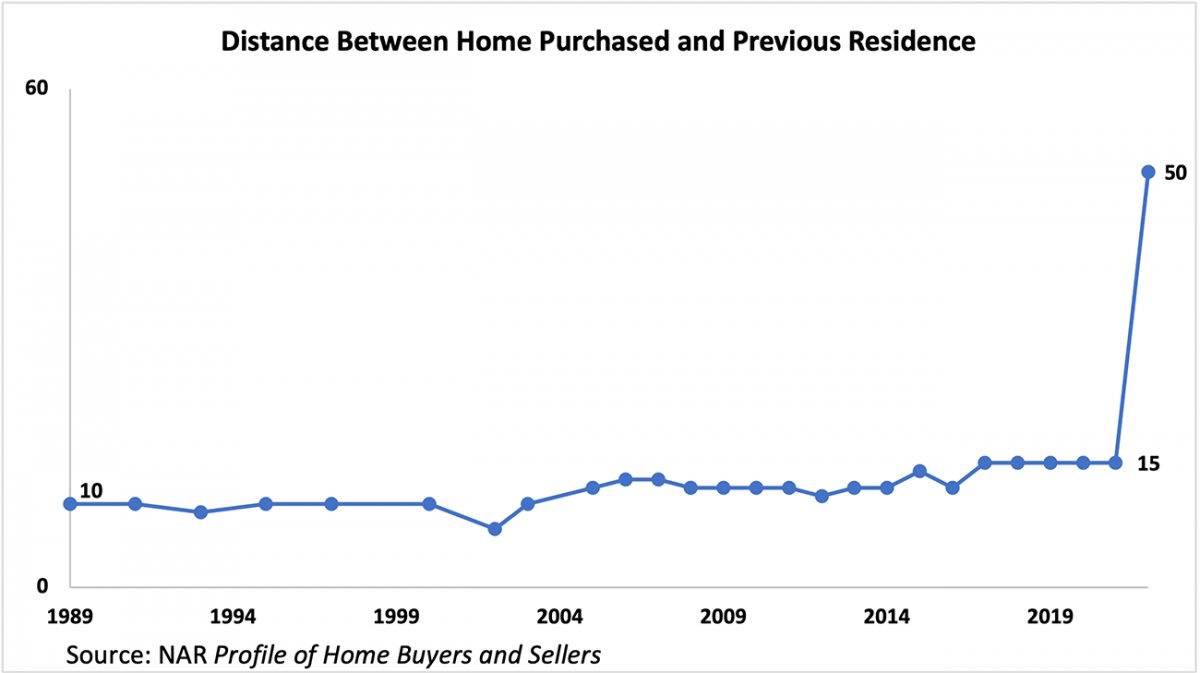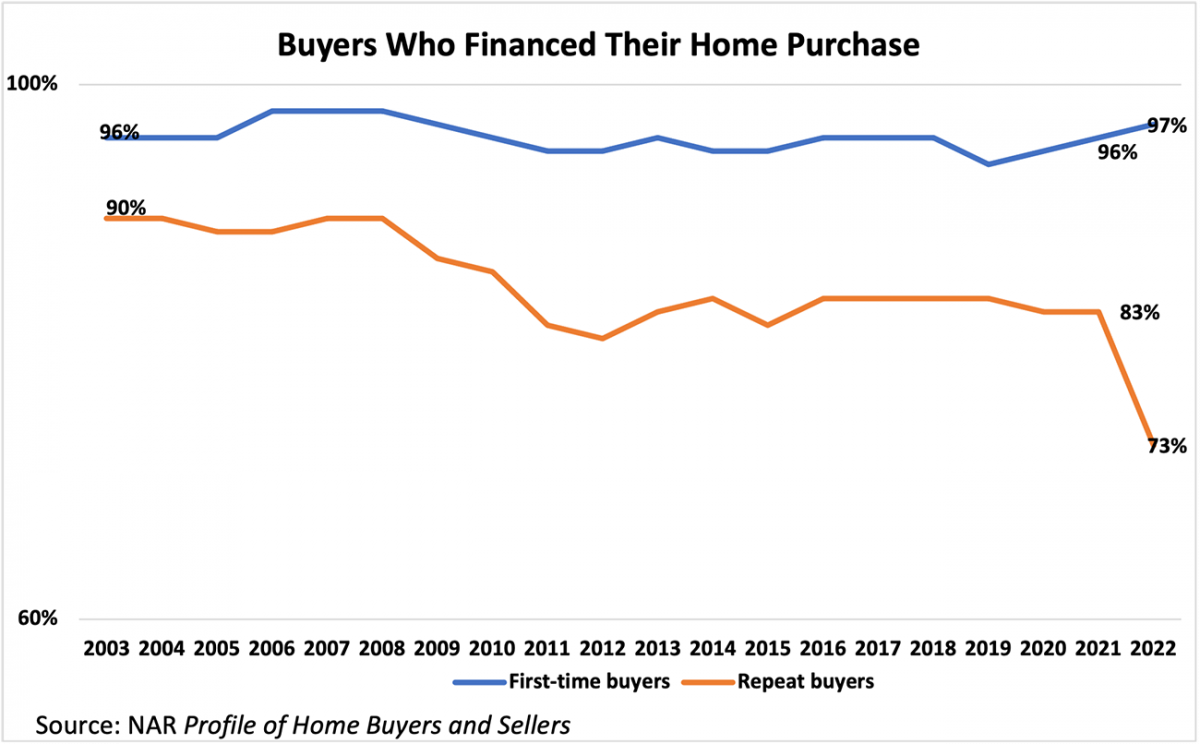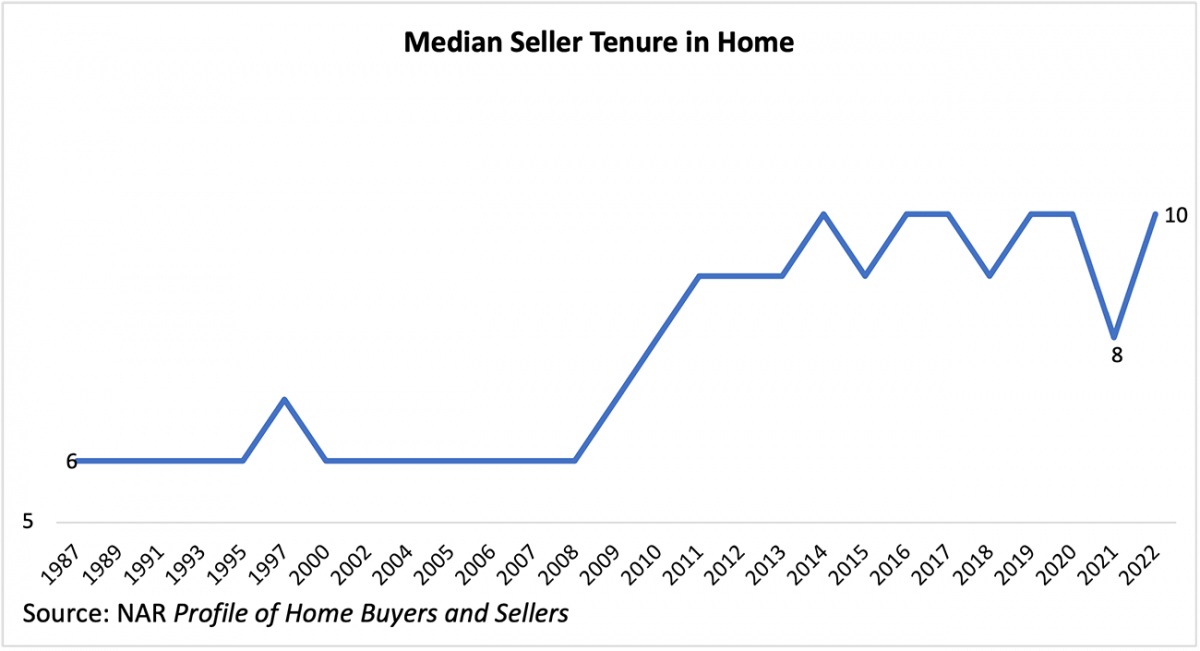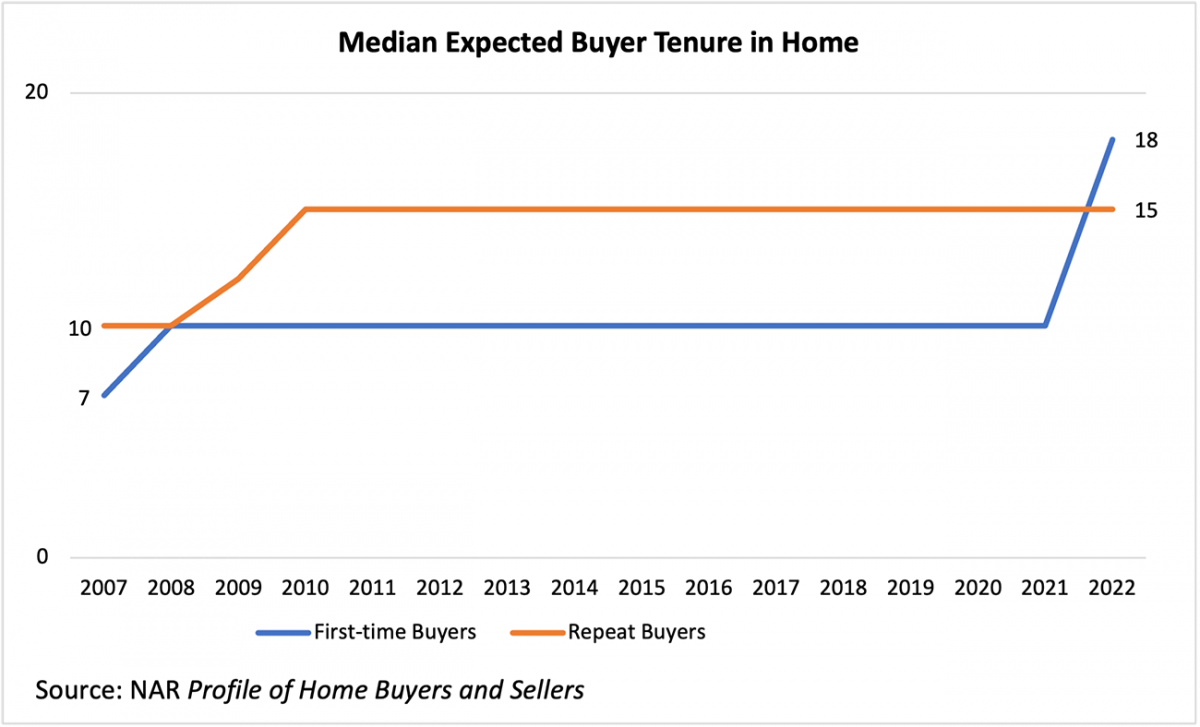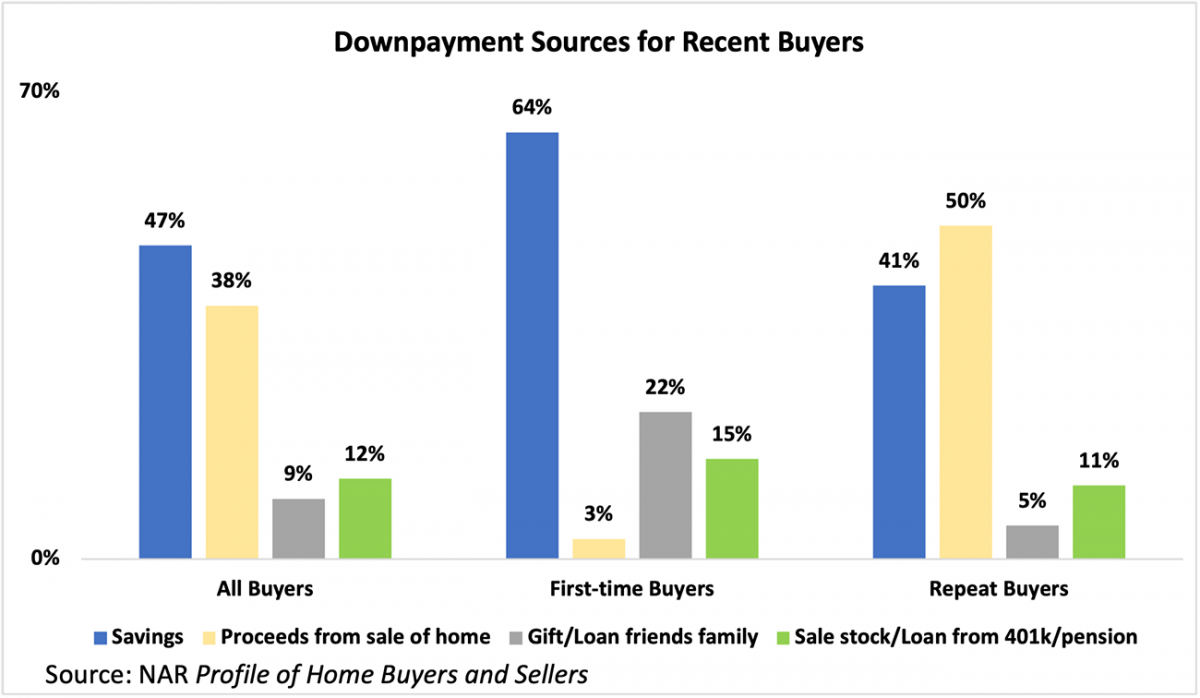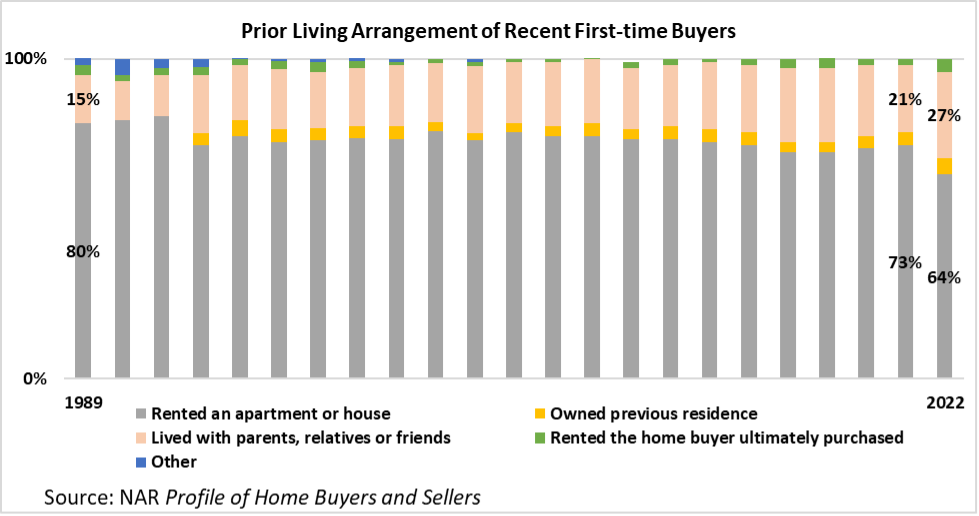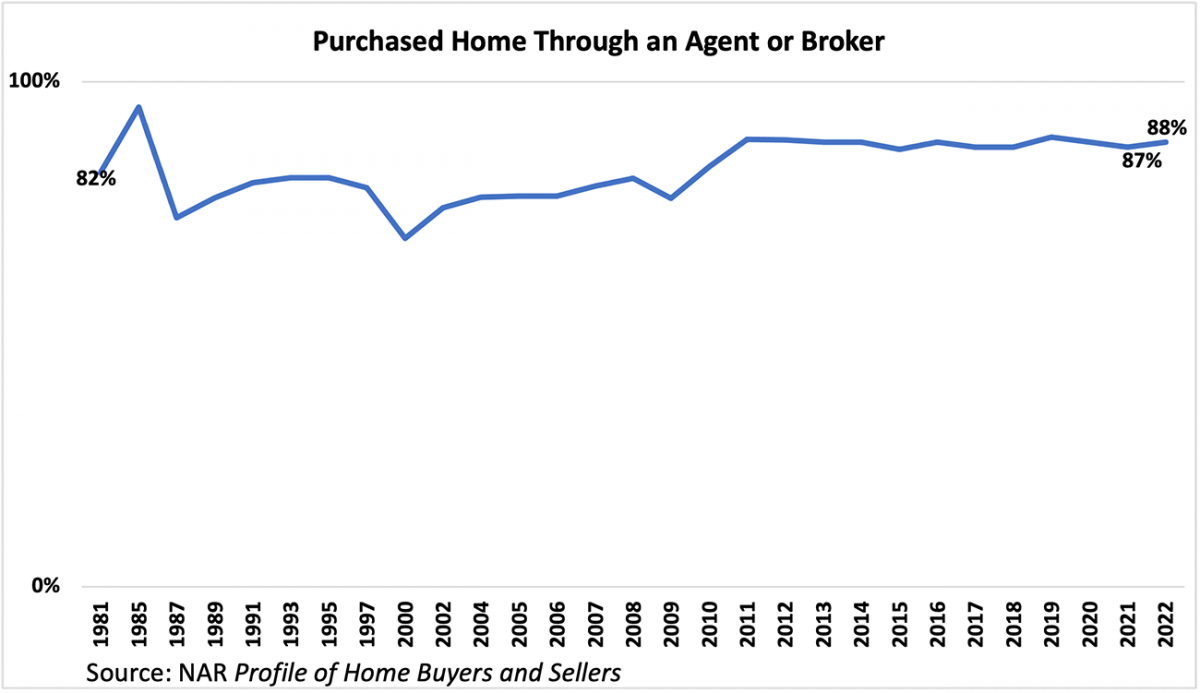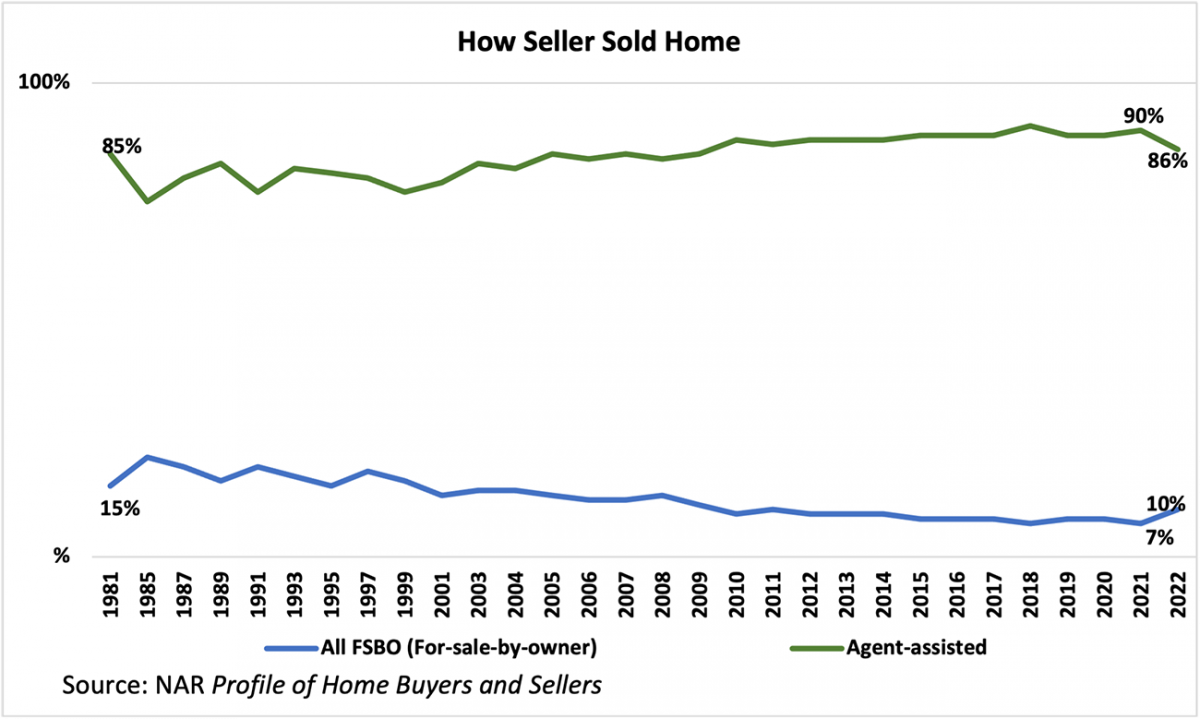4. Small towns and rural areas saw a migration flow while there was a retraction of buying in urban areas and the suburbs.
Buyers choose their neighborhood based on many factors, but the top of the list was the quality of the neighborhood, affordability, and proximity to friends and family. Small towns and rural areas proved to be the winning dynamic for many when making that choice—affordability was key, and family support systems were just down the street.
5. How far a buyer moved jumped to an all-time high of 50 miles from a range that had been steady between 10 to 15 miles.
Buyers' migration to small towns and rural areas was undoubtedly at play. Another factor is remote and hybrid work settings. In January 2021, many headlines touted that CEOs provided employees with permanent remote work. This allowed buyers to separate themselves from city centers or inner suburbs and migrate to farther areas. Zoom towns were the boom towns in the last year.
6. The share of all-cash repeat buyers jumped from 17% to 27% in the past year.
Homeowners have accumulated tremendous housing equity in the last decade and hold about $210,000. This has allowed many to avoid holding a property mortgage and pay all cash for their purchase. As the location to purchase in small towns and rural areas became more popular in the last year, this may have further allowed buyers to move from expensive areas to more affordable ones. The share of first-time buyers who paid all cash remained essentially unchanged at 3%.
7. Tenure in home, before selling, returned to an all-time high of 10 years.
After a pandemic-driven drop last year to eight years in the home, tenure has risen to an all-time high. Between 1987 and 2008, the typical tenure was just six to seven years before someone made a trade. The top reasons sellers made the change in the last year were to be closer to friends and family, moving due to retirement, and their neighborhood had become less desirable. In past years, moving had been more common due to a change in a family situation or a job relocation.
8. Expected tenure for first-time buyers hits an all-time high of 18 years, up from seven years in 2007.
If a first-time buyer was able to enter the homeownership ladder in the last year, they would have less intention of moving from their home quickly. The expected tenure of first-time buyers even surpasses that of repeat buyers of 15 years. Buyers have locked-in rates in a rising rate environment, which likely plays a key factor. For others, the ability to purchase a home in a less urban area may mean just skipping the starter home altogether. One note is that expected tenure is always longer than actual tenure, as buyers have just finished the tremendous hurdle of finding a home and purchasing.
9. Buyers are diversifying where they pull together the down payment for a home.
Given the rise in home prices, buyers are pulling together funds from multiple sources for their down payment. First-time buyers rely on savings as the primary source, but 22% (down from 28% last year) did use a gift or loan from friends/family, and 15% either sold stocks/bonds or took a loan from their 401k/retirement fund. New this year, 2% of first-time buyers sold cryptocurrency to help with the down payment. While half of repeat buyers used proceeds from the sale of their past home, this does not work for all. Forty-one percent used savings, and 11% even sold stock or took a retirement loan.
10. First-time buyers moving directly from a family member's home into homeownership is at an all-time high.
Twenty-seven percent of first-time buyers had this prior living arrangement, up from 21% the past year. These buyers were able to skip rental increases by moving into a home. This allowed first-time buyers to pay down debt, work on their credit scores and save for a downpayment the way others may not have been able to. The share of first-time buyers who rented before buying dropped to 64% from 73%.
11. Buyers and sellers use and want the help and expertise of a real estate agent.
Eighty-eight percent of buyers used a real estate agent to purchase their home. Buyers are most satisfied with their agent's honesty and integrity, and knowledge of the purchase process. For sellers, 86% used an agent to help sell their home. Sixty-three percent of sellers used an agent that they had worked with before or that was referred to them. Sellers most wanted their agent to price the home competitively, help market the home to potential buyers, and sell within a specific time frame.



